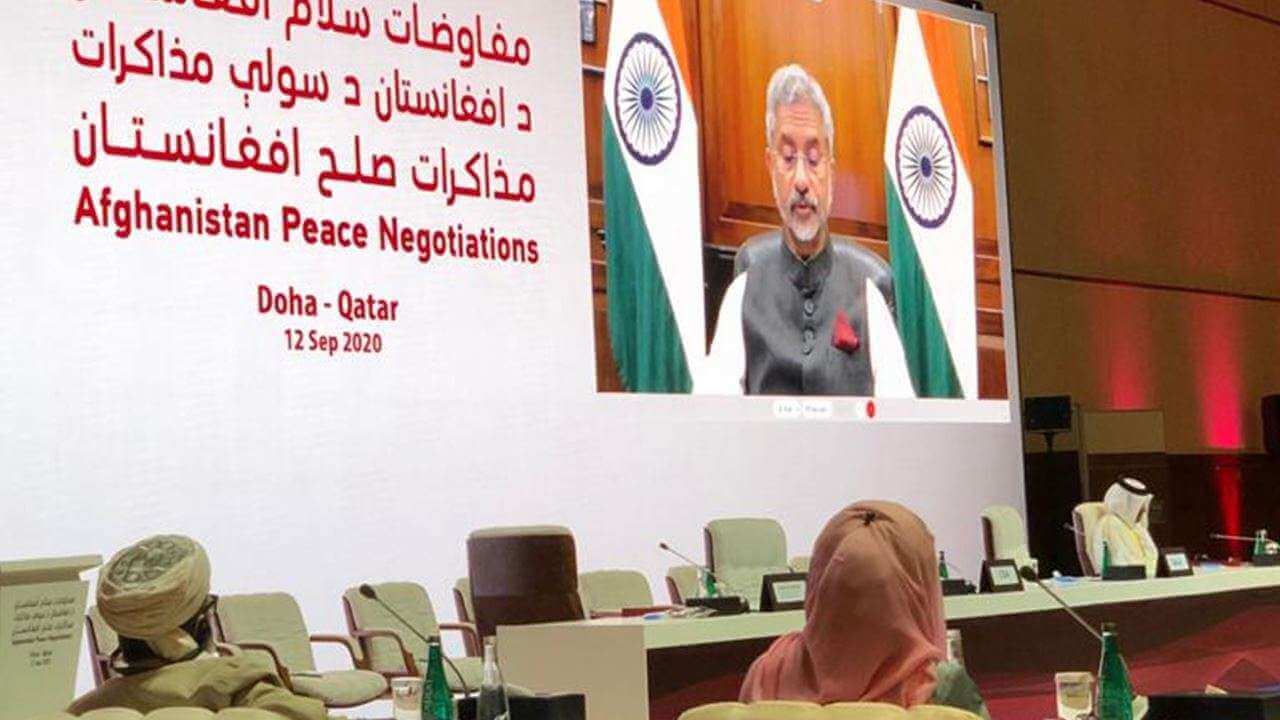On Saturday, historic talks between the Taliban and the Afghan government opened in Doha, where the clashing parties met face-to-face for the first time, in a bid to end a conflict that has marred the country for nearly two decades. The negotiations began one day after the 19th anniversary of the 9/11 attacks in New York, which triggered American military intervention in Afghanistan in 2001. Until now, the Taliban, who have a political office in Doha, had refused to engage in direct talks with the Afghan administration, calling them “American puppets” and deeming them as “powerless”.
At the inaugural ceremony of the negotiations on Saturday, top diplomats from several states, including India and the United States, made opening remarks. Most of them attended the event through video conference. Qatari Emir Sheikh Tamim bin Hamad al-Thani had met representatives from both sides to wish them luck and success. The direct negotiations, which begin on Monday, will see both sides tackling pertinent issues, including terms for a permanent ceasefire, women and minority rights, and the disarming of Taliban militias. It is also expected that representatives will discuss potential changes to the constitution and power-sharing dynamics in the country.
India’s Ministry of External Affairs released a statement following the inaugural session, revealing that External Affairs Minister S. Jaishankar had stressed the importance of an “Afghan-led, Afghan-owned and Afghan-controlled” peace process in the country. Highlighting the historical relationship between India and Afghanistan, the foreign minister said that New Delhi would be supportive of the establishment of a democratic Islamic Republic in the country, which respects the territorial integrity and national sovereignty of Afghanistan. Further, he emphasized that the interests of vulnerable minorities and women must be preserved, and with a subtle reference to Pakistan, stating that the issue of violence in the country and the neighbourhood should be addressed effectively. Jaishankar also urged authorities to ensure that no “anti-India activities” are carried out on Afghan soil.
Pakistan’s foreign minister, Shah Mahmood Qureshi, also warned Afghani representatives against external meddling in their process. “Forthcoming negotiations are for the Afghans to decide about their future. Afghans alone must be the masters of their destiny without outside influence or interference. Constant vigilance will be required to guard against their machinations,” he said, adding that he was “gratified” that Prime Minister Imran Khan’s vision of a political solution to the issue is being shared by other international actors.
The talks come days after the US announced that it would be withdrawing its troops from Afghanistan as per a pact signed between Washington and the Taliban in February. “Each of you carry a great responsibility... You have an opportunity to overcome your divisions,” Secretary of State Mike Pompeo said to the participants.
Everyone participating in the talks has acknowledged that reaching a consensus will be extremely challenging. Activists are concerned about the “fragile progress” made towards women’s rights, considering that the Taliban’s delegation does not have even one female member. The talks will also determine how much the militant outfit has grown since the 1990s, since it is now their responsibility to present a tangible vision for political reform in the country. In the past, the Taliban has rallied around the enforcement of an extremely harsh and conservative reading of the Sharia law. With regards to future plans, so far, they have been vague, stating that they wish for an Islamic government that is also “inclusive”.
Meanwhile, the conflict back home, which has claimed 12,000 civilian lives since February, continues. Taliban spokesperson Zahibullah Mujahid, in a statement, said that the group had attacked an envoy of Afghan military forces at an important highway in Kunduz, stating that the troops had carried out artillery and airstrikes on Saturday night in Jowzian and Baghlan. “With the start of intra-Afghan talks we were expecting the Taliban to reduce the number of their attacks, but unfortunately their attacks are still going in high numbers,” said Fawad Aman, an Afghan defence ministry spokesman.
India Participates in Qatar-led Afghan Peace Negotiations
The direct negotiations, which begin on Monday, will see the Taliban and the Afghan government engaging in talks for the first time to tackle pertinent issues.
September 14, 2020

SOURCE: DNA
